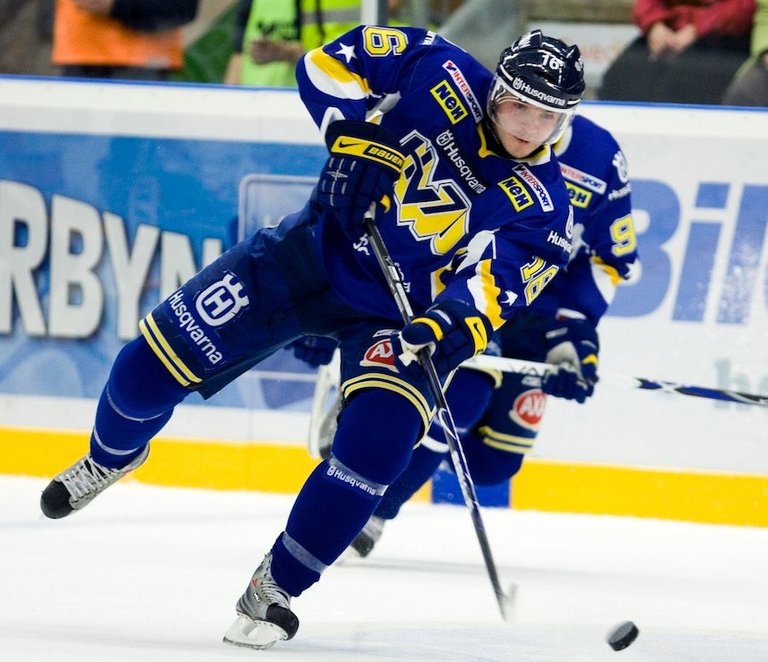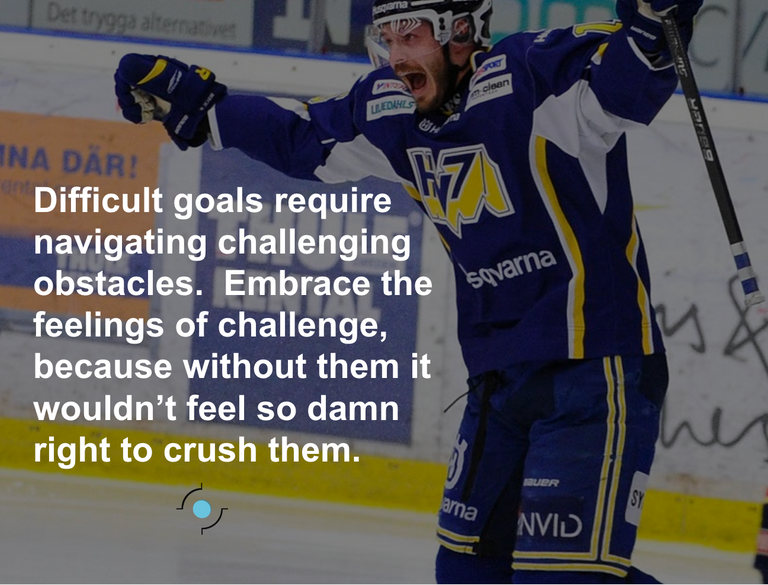
I gravitated to the practice of meditation and mindfulness in a time of continuous pressure and tension. But it didn't take me long to realize that not only did a consistent practice aid in the relief of the suffering I was going through; mindful awareness acted as a catalyst to performance on the ice.
I had struggled with maintaining consistent self-confidence throughout my entire career. It was a bit of a roller coaster ride. I was either on top of the world or in the basement; there wasn't much stability and at this time of my career self-confidence was virtually non-existent.

I immediately understood how mindful awareness contributed to performance. It didn't matter what my thoughts were about the game or myself. When I tapped into that present moment attention via breath or body awareness performance happened naturally. Mindful awareness allowed for the natural expression of years of practice and experience to flow from my mind and nervous system unimpeded.

Now, self-confidence wasn't something to be had or lost. I began to trust and understand that whatever was required from me at that moment in the form of skill, ability and know how would naturally arise. So, in a sense, the word self-confidence lost its significance, It didn't need to be labeled anymore. Whether I "had it" or "didn't have it" had no effect on how I played the game because like I mentioned earlier, it didn't matter what my thoughts were as long as I maintained an effortless present moment focus and attention, peak performance or entering Flow State was a natural occurrence.
I had come to this understanding through a dedicated meditation and mindfulness practice, through experience. But as I began to dig deeper, my experience fit with the relevant research that shows mindfulness and entering that flow state has a common denominator. To me, it's quite logical. The cognitive process of attention and awareness are core characteristics of Flow (Swann et al., 2012), whereby the ability to be absorbed in the present moment task becomes a catalyst to the Flow experience (Csikszentmihalyi, M. and LeFevre, J., 1989). Mindfulness is an open state of sustained effortless non-judgmental awareness on the present moment sensory experience as it unfolds (Brown, and Ryan, 2003). Complete absorption in present moment awareness is a core aspect of both the Flow and Mindfulness experience (Swan et al., 2012).
I hope that those of you who read this don't say, "Well, I don't need to train meditation and mindfulness, because I don't have those same problems." That's not the point of the story. The point of me telling this story is to show that it's a potent way to train the mind and nervous system. My experience with the practice of mindfulness is in line with research that shows mindful athletes are more apt to experience Flow (Kee and Wang, 2008; Kaufman, Glass, and Arnkoff, 2009; Moore, 2013; Cathcart, McGregor, and Groundwater, 2014) and perform under extremely demanding circumstances (Röthlin, Horvath, Birrer, and Grosse Holtforth, 2016).
References
Brown, K.W. and Ryan, R.M., 2003. The benefits of being present: mindfulness and its role in psychological well-being. Journal of personality and social psychology, 84(4), p.822.
Cathcart, S., McGregor, M. and Groundwater, E., 2014. Mindfulness and flow in elite athletes. Journal of Clinical Sport Psychology, 8(2), pp.119-141.
Csikszentmihalyi, M. and LeFevre, J., 1989. Optimal experience in work and leisure.
Journal of personality and social psychology, 56(5), p.815..
Kee, Y.H. and Wang, C.J., 2008. Relationships between mindfulness, flow dispositions and mental skills adoption: A cluster analytic approach. Psychology of Sport and Exercise, 9(4), pp.393-411.
Kaufman, K.A., Glass, C.R. and Arnkoff, D.B., 2009. Evaluation of Mindful Sport Performance Enhancement (MSPE): A new approach to promote flow in athletes. Journal of Clinical Sport Psychology, 3(4), pp.334-356.
Moore, B.A., 2013. Propensity for experiencing flow: The roles of cognitive flexibility and mindfulness. The Humanistic Psychologist, 41(4), p.319.
Röthlin, P., Horvath, S., Birrer, D. and Grosse Holtforth, M., 2016. Mindfulness promotes the ability to deliver performance in highly demanding situations. Mindfulness, 7(3), pp.727-733.
Swann, C., Keegan, R.J., Piggott, D. and Crust, L., 2012. A systematic review of the experience, occurrence, and controllability of flow states in elite sport. Psychology of Sport and Exercise, 13(6), pp.807-819.
This deserves a resteem. Thanks for sharing this.
Thank you for reading, it's a pleasure to share.